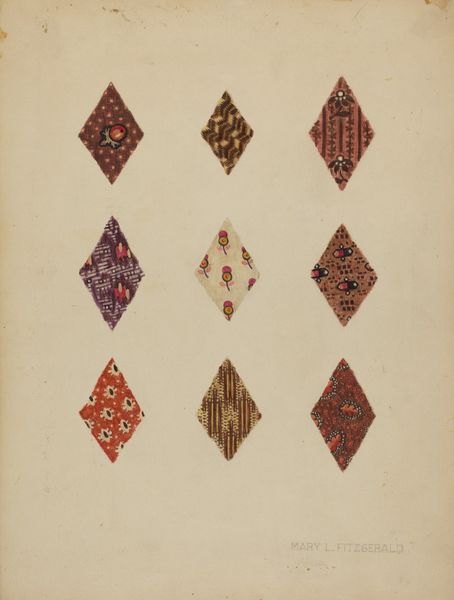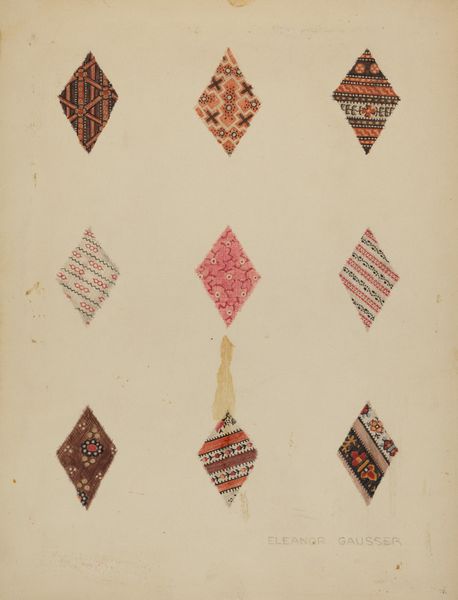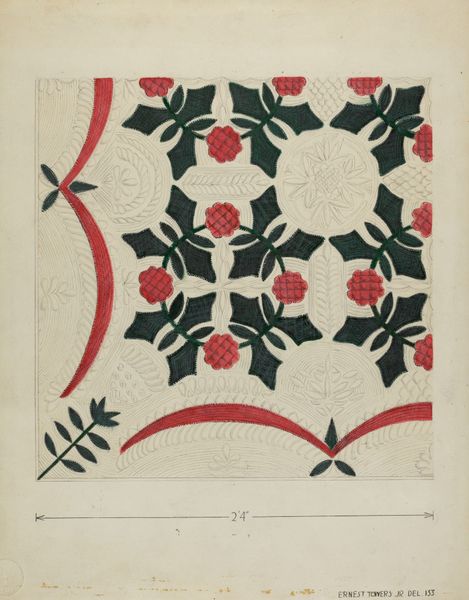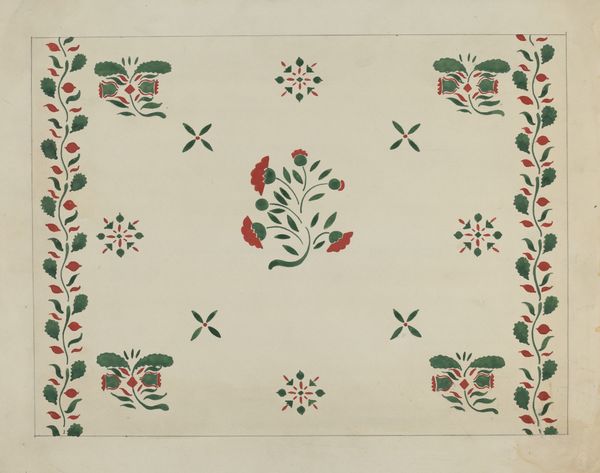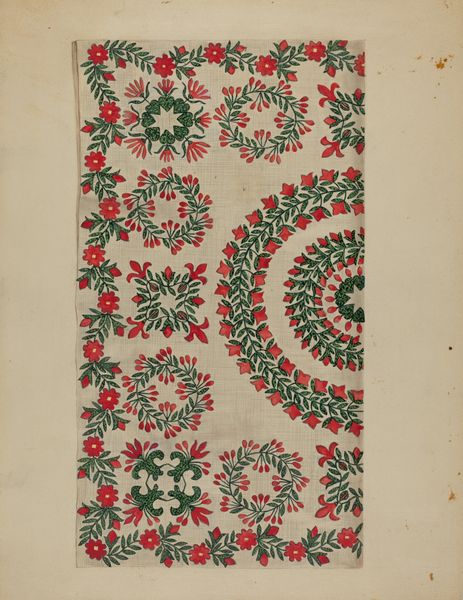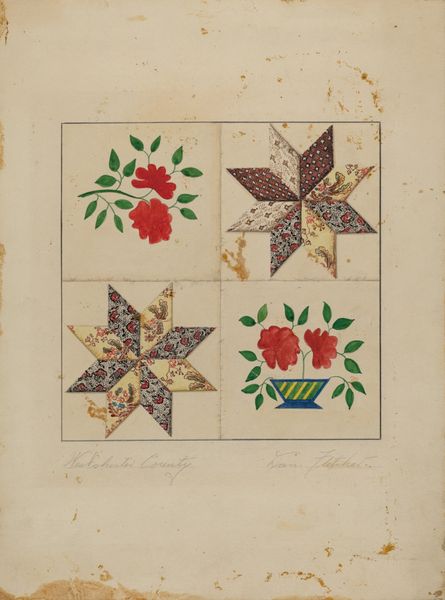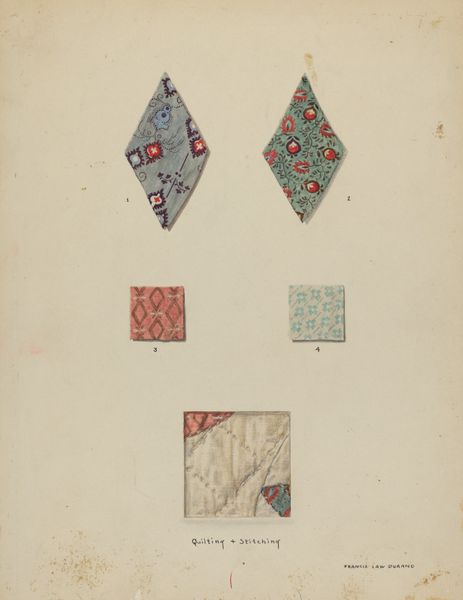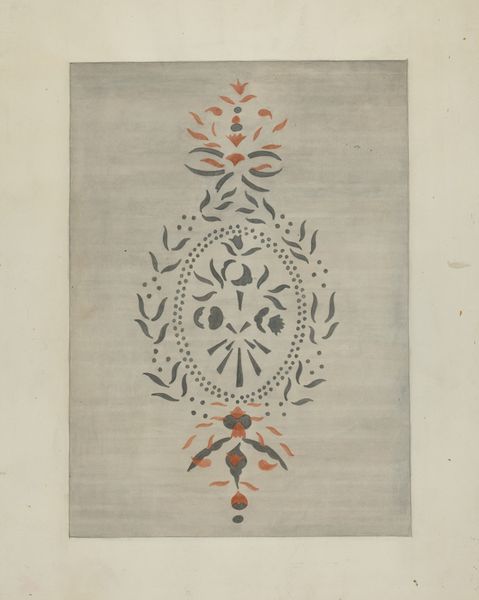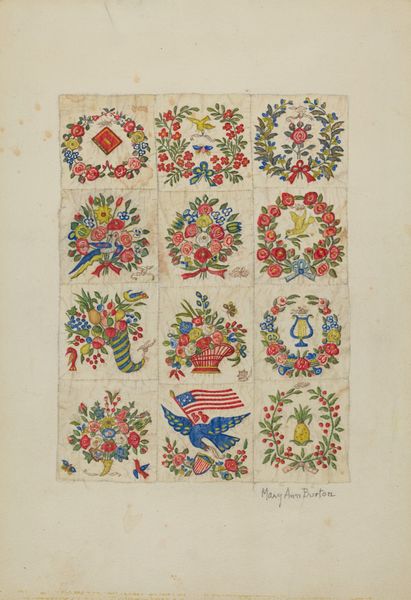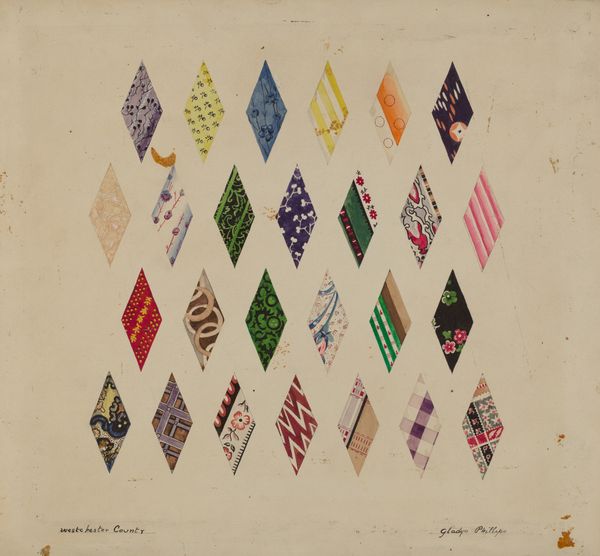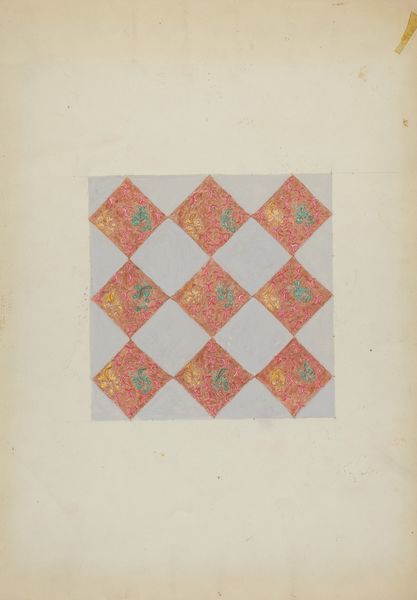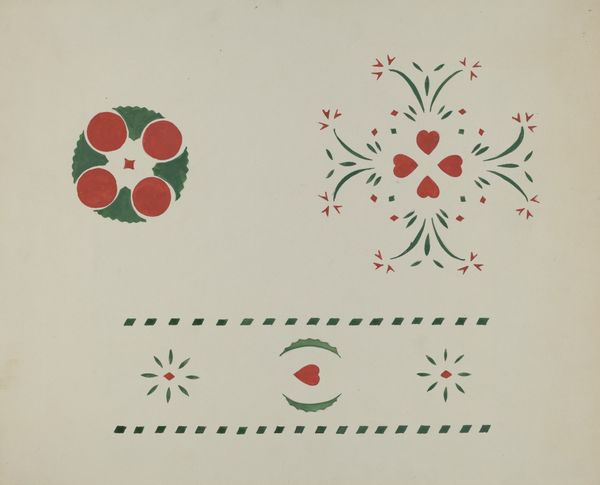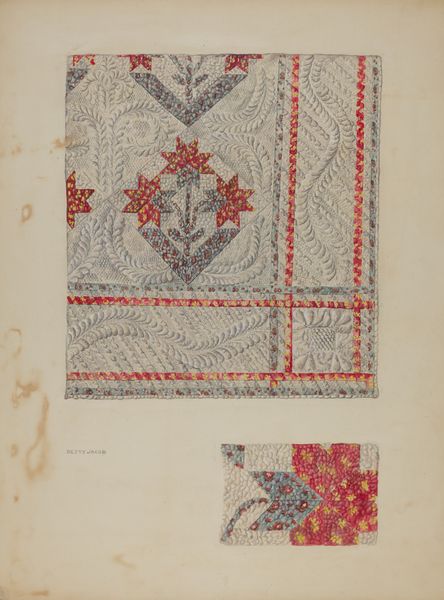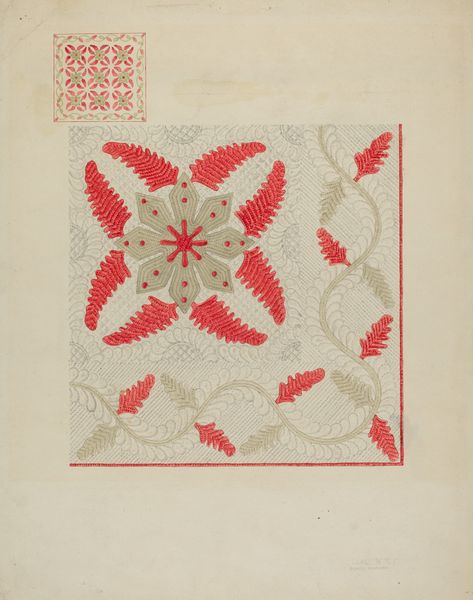
drawing, paper
#
drawing
#
water colours
#
paper
#
watercolour illustration
Dimensions: overall: 22.6 x 30.5 cm (8 7/8 x 12 in.)
Copyright: National Gallery of Art: CC0 1.0
Editor: We're looking at "Printed Quilt Patterns" from 1935-1942 by William P. Shearwood, done in mixed media on paper. It's a charming layout of diamond shapes with different floral designs, flanked by these sweet little floral arrangements. What jumps out at you about this piece? Curator: What immediately grabs me is the implicit domesticity and how that interfaces with the economic realities of the Depression era. Quilt-making, historically a communal activity for women, transforms into a site of individual creativity and resourcefulness due to economic constraints. Do you think this reflects an imposed constraint or a conscious artistic decision? Editor: That’s an interesting point, I hadn't considered the historical context. I guess I saw the folk art influence as purely aesthetic. Do you mean because it was made during the Depression that quilts became canvases for folk art? Curator: Not just canvases, but vital expressions of culture in times of economic austerity, often reflecting a collective longing for simpler times. The creation and display of folk art often had a political undertone. And this work raises some important questions: Who decides what's "art" versus "craft"? How do societal pressures influence those categories? And how are those categories gendered? Editor: Wow, I'm looking at it with entirely new eyes now! I had considered quilting to be simple domestic artistry. Curator: But this forces us to consider it not just through a domestic lens but through an economic, social, and political lens as well. It brings art closer to us! Editor: I completely agree!
Comments
No comments
Be the first to comment and join the conversation on the ultimate creative platform.
